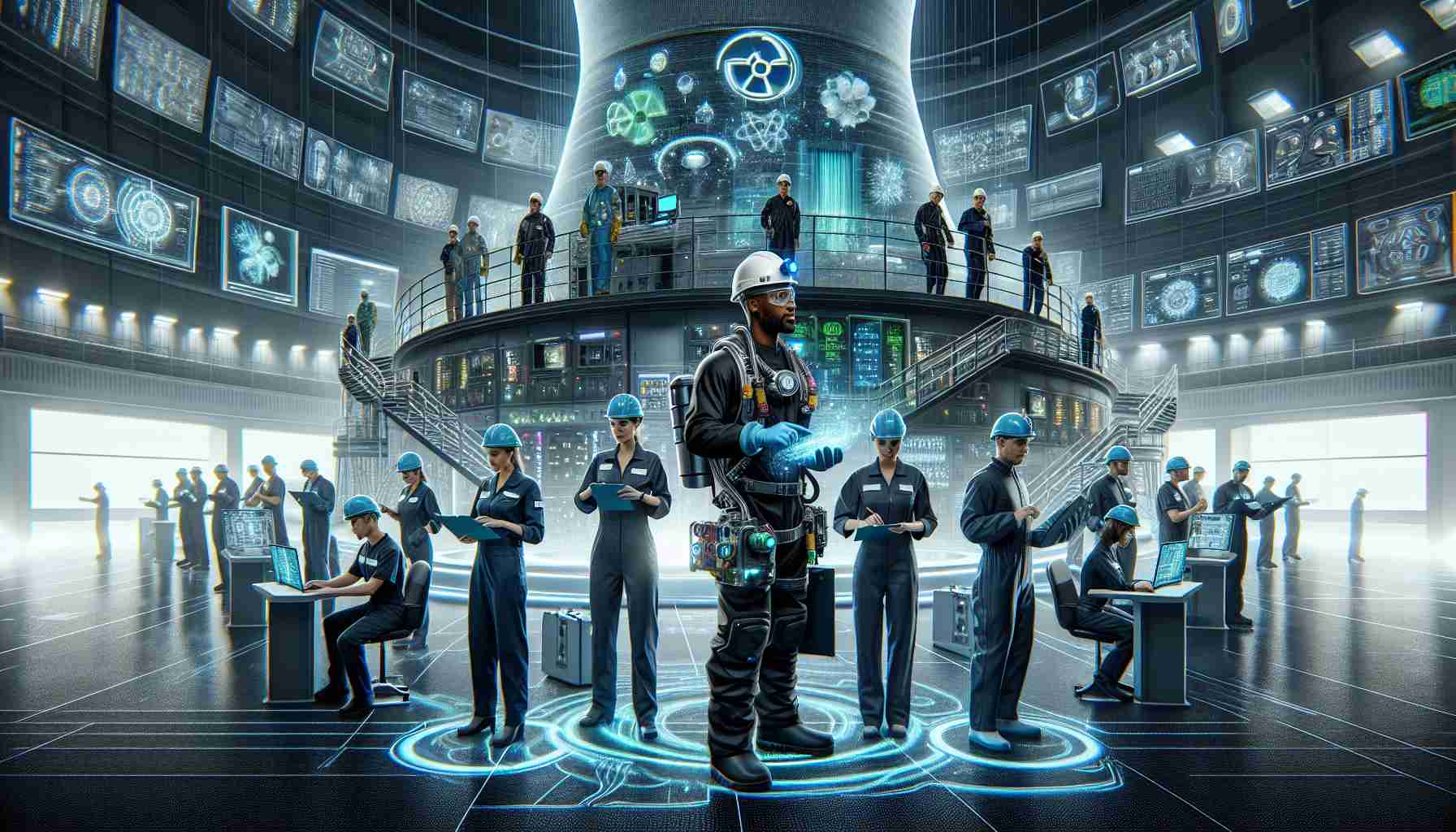- The nuclear industry’s focus on green energy is creating new career opportunities in innovative fields.
- SMRs offer safer and more cost-effective nuclear solutions, increasing demand for skilled roles in engineering, project management, and IT.
- Nuclear fusion advancements are drawing experts in plasma physics, materials science, and energy policy to overcome commercialization challenges.
- The advent of AI and machine learning in the nuclear sector calls for experts in cybersecurity, data science, and digital twin technology.
- This transformative phase in nuclear energy is crucial for a clean energy future and offers diverse opportunities for environmentally-aware professionals.
As the world pivots toward greener energy solutions, the nuclear industry is undergoing a transformative phase, unveiling a host of new career opportunities. Emerging technologies such as small modular reactors (SMRs), advanced nuclear reactors, and nuclear fusion present not only breakthroughs in energy production but also a demand for skilled professionals in this revitalized field.
Relevance of SMRs:
Small Modular Reactors are changing the landscape of nuclear energy, promising safer and more cost-effective solutions. These reactors require advancement in design, construction, and maintenance, leading to a surge in engineering roles, project management, and IT specialists equipped with the latest simulation software skills.
Fusion Power Feasibility:
While nuclear fusion has long been the beacon of sustainable energy, recent strides are moving it closer to reality. This progress beckons a new wave of experts in plasma physics, materials science, and energy policy to tackle the technical and regulatory challenges associated with commercialization.
Expansion in Digitalization:
With the rise of AI and machine learning, the nuclear industry is tapping into digitalization to enhance safety and efficiency. This trend is creating a need for cybersecurity analysts, data scientists, and digital twin developers who can innovate within this tech-driven environment.
In conclusion, the nuclear sector is not only paramount for the clean energy transition but also a fertile ground for diverse and pioneering career paths. As these technological advancements unfold, the industry promises exciting opportunities for the next generation of tech-savvy, environmentally conscious professionals.
Nuclear Renaissance: Unveiling the Future of Green Careers and Breakthrough Technologies
How is the job market evolving with nuclear energy advancements?
The pivot toward greener energy solutions has catalyzed significant changes in the nuclear sector, creating a wealth of new career opportunities. As technologies like Small Modular Reactors (SMRs), advanced nuclear reactors, and nuclear fusion become more feasible, the demand for skilled professionals in engineering, IT, project management, plasma physics, and materials science is surging. In addition to technical roles, there is a growing need for experts in energy policy and regulation due to the innovative and regulatory challenges these technologies present. Digitalization in the nuclear industry is also driving demand for cybersecurity analysts, data scientists, and digital twin developers, making it a dynamic sector for tech-savvy individuals.
What are the pros and cons of adopting Small Modular Reactors?
Pros:
– Safety: SMRs offer enhanced safety features, including passive safety systems that reduce human intervention and potential hazards.
– Cost-effectiveness: Due to their smaller size and modular construction, SMRs can be more cost-effective and quicker to build compared to traditional reactors.
– Flexibility: SMRs can be deployed in remote locations and provide flexible power output, making them suitable for a range of applications.
Cons:
– Regulatory Challenges: New licensing processes and regulatory frameworks are required, which can slow down deployment.
– Public Perception: There are continuing public concerns around nuclear safety, which need to be addressed to gain societal acceptance.
– Waste Management: Despite advancements, nuclear waste management remains a challenge, requiring innovative approaches and technologies.
How does digitalization enhance safety and efficiency in the nuclear industry?
Digitalization in the nuclear industry leverages AI and machine learning to improve safety and operational efficiency. Advanced simulation software aids in reactor design and testing, reducing errors and enhancing safety protocols. Digital twins, which are virtual models of physical systems, allow for real-time monitoring and predictive maintenance, minimizing downtime and optimizing performance. Cybersecurity is also a critical aspect, with the need to protect infrastructure from digital threats. This integration of technology not only streamlines operations but also ensures a safer, more resilient nuclear sector.
For more insights into the nuclear energy sector, visit Nuclear Energy Institute (NEI) or International Energy Agency (IEA).
The source of the article is from the blog publicsectortravel.org.uk











